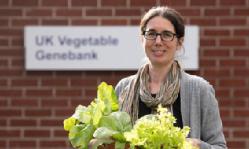Life Sciences News
See our Latest Journal Publications
Understanding lung infections in patients with cystic fibrosis
For young people with cystic fibrosis, lung infection with Staphylococcus aureus, MRSA, is common and is treated with antibiotics in the hope that this will prevent a decline in lung function. However there has recently been debate over the role S. aureus plays in CF lung disease. Dr Esther Sweeney, Dr Freya Harrison and colleagues have used a new model of CF lungs which could be used to make better decisions about future use of antibiotics.
Press Release (19 November 2020)
Chemical clues in leaves can reveal ash tree resistance to deadly disease
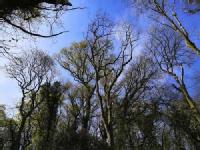 Dr John Sidda, Professor Murray Grant and colleagues, have identified a group of chemicals present in ash leaves which could be used as biomarkers to look for susceptibility or resistance to ADB.
Dr John Sidda, Professor Murray Grant and colleagues, have identified a group of chemicals present in ash leaves which could be used as biomarkers to look for susceptibility or resistance to ADB.
Press Release (11 November 2020)
Could insect manure help grow crops? Warwick and Durham researchers to investigate
The waste from larvae production could be used as a crop fertiliser should commercial insect farms get off the ground in the UK. This is the concept that Rob Lillywhite and researchers at Durham University are investigating as part of a major government-funded project to look at the viability of rearing insects for animal feed in the UK.
Press Release (26 October 2020)
Scientists develop genetic ‘monitors’ that detect when genes are active
New genetic sensors, developed by Professor Alfonso Jaramillo and colleagues, could function as a lab test device and even as a live monitoring system inside living cells.
Press Release (26 October 2020)
Precautionary Breaks: planned, limited duration circuit breaks to control the prevalence of COVID-19
Cases of COVID-19 are rising exponentially in almost all regions of the country, with some areas experiencing extremely high levels of infection - new research involving University of Warwick researchers has found. Against this backdrop of rising cases, their paper examines the impact of a short 2-week period of intense control.
Press Release (14 October 2020)
Genetic mutation may hold answers to controlled breathing
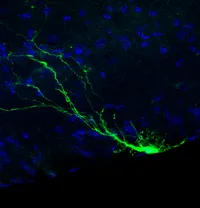 The relationship between the Cx26 gene and ability to regulate Carbon dioxide is to be explored by Professor Nick Dale thanks to a £686,956 grant, from the BBSRC.
The relationship between the Cx26 gene and ability to regulate Carbon dioxide is to be explored by Professor Nick Dale thanks to a £686,956 grant, from the BBSRC.
Press Release (13 August 2020)
Natural way to boost crop yield to be explored by Warwick Scientists
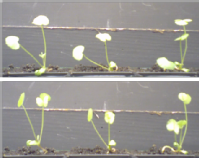 An innovative way to increase plant yield naturally, reducing the need for expensive fertilisers is being explored by Dr Miriam Gifford, Dr Isabelle Carré and colleagues, thanks to a £492,343 grant from the BBSRC.
An innovative way to increase plant yield naturally, reducing the need for expensive fertilisers is being explored by Dr Miriam Gifford, Dr Isabelle Carré and colleagues, thanks to a £492,343 grant from the BBSRC.
Press Release (12 August 2020)
Medieval medicine remedy could provide new treatment for modern day infections
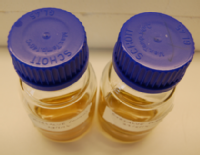 Antibiotic resistance is an increasing battle for scientists to overcome, as more antimicrobials are urgently needed to treat biofilm-associated infections. However, Dr Freya Harrison and colleagues say research into natural antimicrobials could provide candidates to fill the antibiotic discovery gap.
Antibiotic resistance is an increasing battle for scientists to overcome, as more antimicrobials are urgently needed to treat biofilm-associated infections. However, Dr Freya Harrison and colleagues say research into natural antimicrobials could provide candidates to fill the antibiotic discovery gap.
Press Release (28 July 2020)
Plant-based diets shown to lower blood pressure even with limited meat and dairy
Consuming a plant-based diet can lower blood pressure even if small amounts of meat and dairy are consumed too, according to new research from the University of Warwick.
Press Release (27 July 2020)
Breakthrough in studying ancient DNA from Doggerland that separates the UK from Europe
Professor Robin Allaby and colleagues have achieved a number of innovative breakthroughs in analysing sedimentary ancient DNA to reconstruct an 8,150 year old environmental catastrophe in an area that is now covered by the North Sea.
Press Release(16 July 2020)
Global warming will cause ecosystems to produce more methane than first predicted
Research by Dr Kevin Purdy et al suggests that as the Earth warms natural ecosystems such as freshwaters will release more methane than expected from predictions based on temperature increases alone.
Press Release (30 June 2020)
Warwick research part of project investigating newly discovered prehistoric shafts near Stonehenge
Professor Robin Allaby's lab is analysing soil samples from a newly discovered Neolithic structure near Stonehenge, to try and discover its purpose in ancient Britain.
Appetite can be increased by cells in the brain
Tanycytes are glial cells, which communicate with neurons in the brain to inform it of what we have eaten. Professor Nick Dale and colleagues have found when tanycytes are selectively stimulated appetite was increased.
New University of Warwick modelling supports cautious reopening of schools if other lockdown measures continue to control the coronavirus
The gradual reopening of schools, starting with primary schools, is unlikely to lead to a second wave of infection, according to new mathematical modelling of the COVID-19 outbreak from University of Warwick researchers, but we should be prepared to reintroduce lockdown measures should there be a significant rise in the number of new cases.
New technique for engineering living materials and patterns
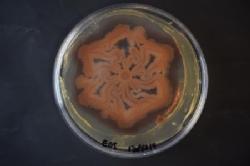 A new method for engineering living materials called ‘MeniFluidics’, made by researchers from the departments of Life Sciences and Physics, could see a transformation in tissue engineering and bio-art, as well as new ways to research cellular interactions.
A new method for engineering living materials called ‘MeniFluidics’, made by researchers from the departments of Life Sciences and Physics, could see a transformation in tissue engineering and bio-art, as well as new ways to research cellular interactions.
Dr Munehiro Asally comments:
“We hope MeniFluidics will be used widely by biophysics, microbiologists, engineers and also artists! As it is a simple and versatile method.”
Warwick scientists discover how cells respond to fasting
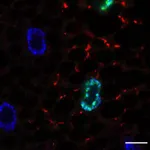 A team of researchers led by Professor Ioannis Nezis, discovered how cells activate autophagy genes during fasting.
A team of researchers led by Professor Ioannis Nezis, discovered how cells activate autophagy genes during fasting.
A new understanding of everyday cellular processes
 We use cells to breathe, to moderate body temperature, to grow and many other every day processes, however the cells in these processes are so complex its left scientists perplexed into how they develop in different environments. Professor Orkun Soyer and colleagues say future research needs to look into the bioelectrical composition of cells for answers.
We use cells to breathe, to moderate body temperature, to grow and many other every day processes, however the cells in these processes are so complex its left scientists perplexed into how they develop in different environments. Professor Orkun Soyer and colleagues say future research needs to look into the bioelectrical composition of cells for answers.
The need for a measured approach for relaxation of lockdown measures during the COVID-19 pandemic
New research, led by Professor Matt Keeling, finds the need for a measured approach to relaxing lockdown measures during the COVID-19 pandemic - which may mean regional social distancing until mid-2021.
Press Release
Lockdown staff and students at University of Warwick to help with wildlife surveys
Members of the Warwick community who are living on campus during lockdown have the opportunity to help survey wildlife for a biodiversity project.

